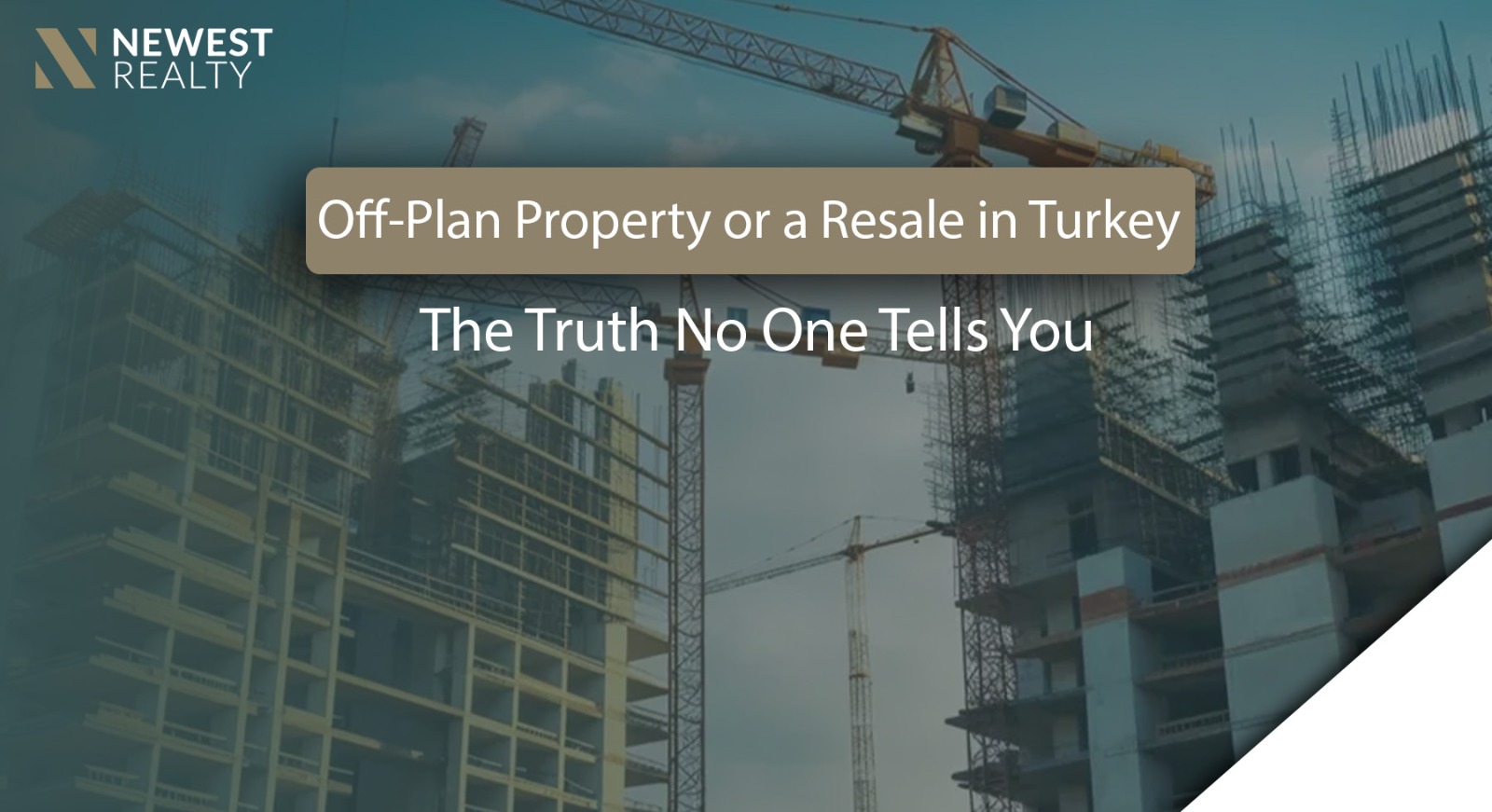Should You Buy an Under-Construction or a Pre-Owned Property in Turkey? The Truth No One Tells You
Amid the major fluctuations in Turkey’s real estate market, a common question arises among investors and buyers:
Is it better to buy an under-construction property or go for a pre-owned one?
At first glance, the answer may seem simple when comparing prices—but the truth goes far deeper than this superficial metric. In this article, we reveal the fundamental differences and hidden realities many overlook, helping you make a smart, well-informed investment decision.
Why Are New Properties More Expensive Than Pre-Owned Ones?
Indeed, the market shows that under-construction properties today are significantly more expensive than pre-owned ones, even if the latter are relatively new (3–5 years old). This is due to two main reasons:
1. Inflation and Cost Surge
Construction costs have skyrocketed. For example, one square meter that used to cost $700 to build five years ago now exceeds $1,200. Additionally, land prices have increased by up to 40%. These figures reflect the current reality under both global and local inflation waves.
2. Earthquake Codes and Safety Regulations
Turkey—especially Istanbul—has tightened construction standards due to seismic concerns. These updates affect concrete quality, iron quantity, and excavation depth, raising construction costs by 10–30% compared to older standards.
Urban Renewal vs. New Land Projects: A Critical Tax Difference
Many people are unaware of the huge cost differences between projects built on new plots of land and those constructed under urban renewal programs (rebuilding old structures).
- New Land Projects: Developers bear high taxes exceeding 20% of the property’s value, with no government support.
- Urban Renewal Projects: These enjoy tax exemptions and title deed discounts of up to 25% of the property’s value—dramatically reducing the cost for the buyer.
Example: You might find an under-construction property in a central area like Mahmutbey priced similarly to a pre-owned unit, because it’s covered by urban renewal exemptions. Meanwhile, a new unit in Büyükçekmece may be far more expensive due to lacking these privileges.
Investment Comparison by the Numbers
Let’s say you’re considering two options:
- Pre-owned property (5 years old) for $100,000 in cash
- Under-construction unit for $120,000 with 40% down payment, and the rest in installments over 3 years
|
Category |
Under-Construction Property |
Pre-Owned Property |
|
Base Price |
$120,000 |
$100,000 |
|
Title Deed Tax (4%) |
$0 (Possible Exemption) |
$4,000 |
|
Agent Commission (2–3%) |
Often $0 |
$2,000–$3,000 |
|
Total Initial Payment |
$48,000 down |
$107,000 cash |
Even though the under-construction unit has a higher total price, installment options and tax exemptions make it easier on liquidity, giving you more room for balanced investment planning.
Which Should You Choose? It Depends on Your Goal
- If you're an investor:
An under-construction unit in an exempted, promising area is a smart choice—especially if you plan to rent it after handover to cover the installments. - If you’re buying to live immediately:
A pre-owned unit could be better—but only if it meets modern seismic and safety standards.
Warning: Not All Under-Construction Projects Are Worth It!
Some developers overprice their projects, taking advantage of buyers' lack of knowledge—especially in poorly planned areas. Always:
- Verify the project's location and urban strategy
- Ask about government exemptions
- Compare price per square meter with neighboring projects
Final Thoughts – And a Personal Note
Many people bought properties without proper calculations—only to regret it later. Don’t base your decision solely on others' positive or negative experiences.
Understand your numbers and consult a trusted expert.
If you're investing, logic and financial reasoning matter more than emotions about buying new or ready-to-move-in properties.


